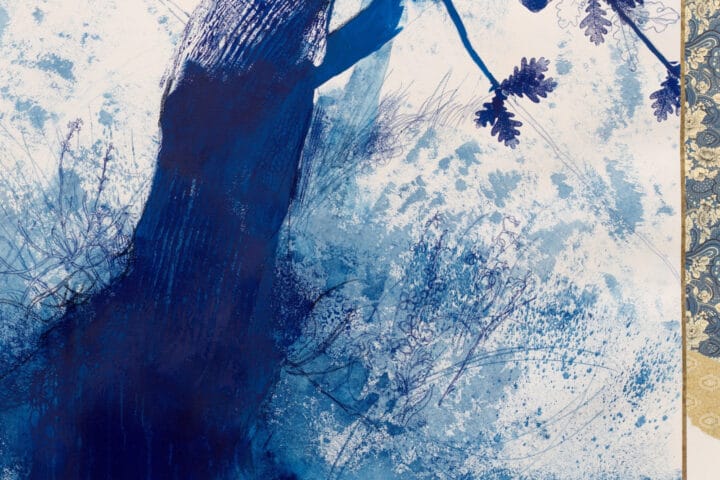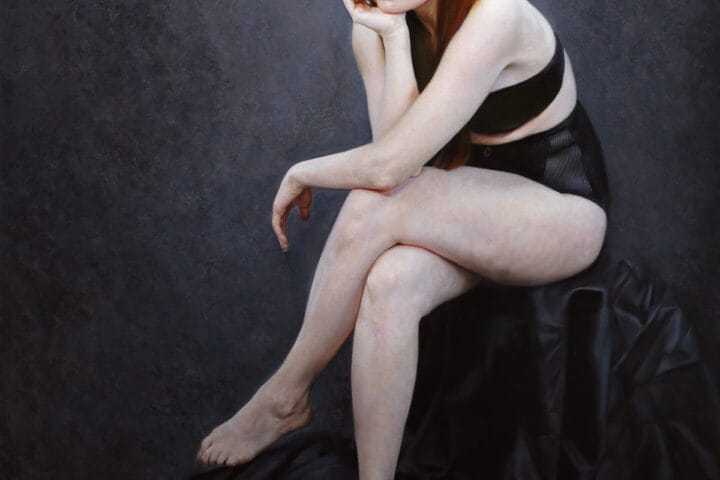Dissident Practices: Brazilian Women Artists, 1960s–2020s by Claudia Calirman (Duke University Press, April 2023) examines sixty years of visual art by more than 18 prominent and emerging Brazilian women artists from the 1960s to the present. Through their radical sociopolitical agendas, they affirm their differences and produce diversity in a society where women remain targets of brutality and discrimination. Though they were lauded as key figures in Brazilian art and enjoyed a unique position in terms of visibility and prominence in the country, these artists still faced adversity and constraints because of their gender.
Dissident Practices, in full color with 98 illustrations, spans the years from the military dictatorship in the mid-1960s to the return to democracy in the mid-1980s, the social changes of the 2000s, the rise of the Right in the late-2010s, and the recent development of a more diverse younger generation fighting for gender equality and LGBTQI+ rights. Calirman, Associate Professor and Chair of the Department of Art and Music at John Jay College of Criminal Justice, is also the author of Brazilian Art under Dictatorship: Antonio Manuel, Artur Barrio, and Cildo Meireles (Duke University Press, 2012).
An exhibition accompanying the book launch will be on view at the Anya and Andrew Shiva Art Gallery at John Jay College of Criminal Justice, 860 11th Avenue, New York, from April 19-June 16, 2023. In conjunction with the exhibition a roundtable discussion will be held on May 3, from 5-6.45 p.m. with speakers Julia Bryan-Wilson, Professor of LGBTQ Art History and core faculty in Columbia’s Institute for the Study of Sexuality and Gender; André Lepecki, Chair and Professor of Performance Studies at New York University; and Vivian Crockett, Curator at the New Museum, NY. The exhibition opening reception and book launch will follow from 7-9 p.m. at the Shiva Gallery.
Dissident Practices has less to do with neat generational divides than with major historical transformations and ruptures that took place in the sociopolitical and cultural spheres. The book analyzes works by such artists as Sonia Andrade (b.1935-2022), Lenora de Barros (b. 1953), Fabiana Faleiros (b. 1980), Renata Felinto (b. 1978), Anna Bella Geiger (b. 1933), Anna Maria Maiolino (b. 1942), Lygia Pape (1927–2004), Lyz Parayzo (b. 1994), Letícia Parente (1930 – 1991), Rosana Paulino (b. 1967), Wanda Pimentel (1943-2019), Berna Reale (b. 1965), Rosângela Rennó (b. 1962), Sallisa Rosa (b. 1986), Gretta Sarfaty (b. 1947), Aleta Valente (b. 1986), Regina Vater (b. 1943), and Márcia X (1959 – 2005).
“Creatively conceived, clearly written, and compellingly argued, Claudia Calirman’s feminist perspective illuminates a wide range of recent Brazilian artists both emerging and established,” notes Julia Bryan-Wilson, author, curator and professor at Columbia University.
Calirman gives a nuanced account of the adversities and contradictions faced by these artists. Although many of them in the 1960s and 1970s disavowed the term feminism, they still employed feminist strategies. Their artistic practices became inseparable from a multiplicity of battles against censorship, state violence, social inequality, systemic racism, police brutality, and the exclusion of marginalized groups. Through a decolonial perspective, they responded to authoritarianism, engaged with trauma in the aftermath of the military dictatorship, interrogated social gender norms, and fought against women’s objectification.
Much has changed over the sixty years covered by the book. Artists no longer only come from the white middle and upper classes, but also from diverse social backgrounds challenging asymmetries in power relations and demanding more inclusion in the art scene. They engage with new technologies, promoting their works through social media and no longer depending on the validation and legitimation of museums, galleries, and art institutions.
“Woven across time and artistic mediums, Dissident Practices provides a complex multivocal, intergenerational, and multidisciplinary art historiography of practices of creative resistance against all forms of subordination and oppression: gendered, political, social, racial, and artistic, from the perspective of singular women artists from Brazil,” added art historian, curator, and writer in Cecilia Fajardo-Hill.
About the Author
Claudia Calirman is the Chair and Associate Professor of Art History at John Jay College of Criminal Justice, New York, in the Department of Art and Music. She is the author of Brazilian Art under Dictatorship: Antonio Manuel, Artur Barrio, and Cildo Meireles (Duke University Press, 2012), which analyses the intersection of politics and the visual arts during the most repressive years of Brazil’s military regime, from 1968 until 1975. The book received the Arvey Award by the Association for Latin American Art. Calirman is a recipient of the Arts Writers Grant from Creative Capital/Warhol Foundation and was a Visiting Scholar at the David Rockefeller Center for Latin American Studies at Harvard University.
Dissident Practices: Brazilian Women Artists, 1960s–2020s
By Claudia Calirman
Published by Duke University Press, April 2023
264 pages, 98 color illustrations
Paper ISBN: 978-1-4780-1940-4/Cloth ISBN: 978-1-4780-1677-9
Price: $26.95












